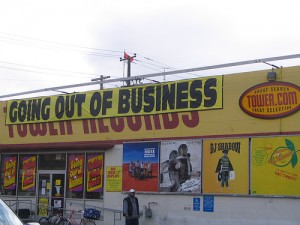Starting a small business is way to living your American Dream. But the market place is often unforgiving. Research shows that less than 5 out of 10 small businesses survive beyond first 5 years. Any budding entrepreneur planning to invest his time and savings into a new venture would not want to be a part of this sobering statistic.

Though there are very little authentic research available, Dun & Bradstreet did come up with a oft quoted research report more than a decade ago which said 88.7% of businesses fail due to management mistakes. Well, that doesn’t really help.
Read on to find out our take on the pitfalls of small businesses due to management mistakes and how to avoid them.
1. No Viable Market
You have this great idea for service or product which you think will change the industry, but have you stopped to think if there are customers willing to pay for it? Build it and they will come school of thought has only let to demise of many small business owners.
Answer this question before plunge into any new business – Why should a customer buy from you and not from a corporate giant or others who have been the business for years? Is it because you offer much needed personalized service or customized solutions or even shorter turnaround time or after sales service. What is it?
Check out this podcast by Steve Blank, a professor in Stanford. He mentions that about 90% of the start ups die because they can’t find the market. So he says, go find out if there’s someone who wants your product or service. Do know what your value proposition is?
As Peter McLean writes in his article Small Business Plan – What is your Value Proposition? – Value proposition is only discovered through depth of thought and rigorous analysis of the market place, competition and existing practices. It involves listening to what the customers are saying and understanding their needs.
Make sure your business offers something that customers would value.
2. Poor Capital Structure and Cash Flow Crunch
It is fairly common for business owners to take up too much debt or underestimate capital required to reach cash flow breakeven, causing many promising ventures to shut down prematurely. You need to be conservative with your financial projections and be sure to have adequate funds (or personal savings) to cover all the sunk costs, till your business becomes cash flow positive. Small business cash flow crisis –Pyschology and not economics is to blame, by Chaitanya Sagar, CEO of www.p2w2.com, tells you how to stay out of cash crunch.
3. Lack of Marketing Expertise
Your customers won’t buy from you if they don’t know you are around. You need to market yourself. And do not make the mistake of treating marketing as an unnecessary expense!
Find effective ways to market yourself through advertising, direct marketing, trade shows and exhibitions. Set up your website and market yourself through internet media such as blogs, forums, email groups and even search engine marketing.
The results are never instant and you need to find the optimum mix that works for your industry. Hire a consultant if you do not have the expertise.
4. Poor Management
Poor management ranks high on what not to do list of business owner. If you lack current and relevant in formation in finance, purchase, selling, production, hiring and managing employees, get help!
When you reach a critical level (about 1 million to 5 million dollars), be sure to put proper management structure in place that will make the work flow
and information flow optimal without your business loosing its dynamism. Also this is the time when you hire suitable managers.
5. Out of touch with customers
Most small businesses are able to have a personal relationship with customers. This is one advantage that huge corporations do not have. You need to focus on good quality products and services and aim on high customer satisfaction levels.
Use customer feedback as free business advice! Ask you customers for feedback and suggestions, evaluate them and incorporate into your business. This mechanism would help you gauge changes in customer tastes, preferences, price sensitivity. Also they are the best source of information of your competitor activities.
Life as a small business owner can be exciting and rewarding, if everything goes as per the plan. You have the advantage of being forewarned about the pitfalls of being in a small business. So go for it!
About the Author: Shaila Rao is a guest contributor at p2w2.com which helps small businesses outsource services like writing, software, graphic design, virtual assistance, business consulting and research. Shaila blogs at p2w2 blog (RSS).
Picture credits: yanec, danesparza






